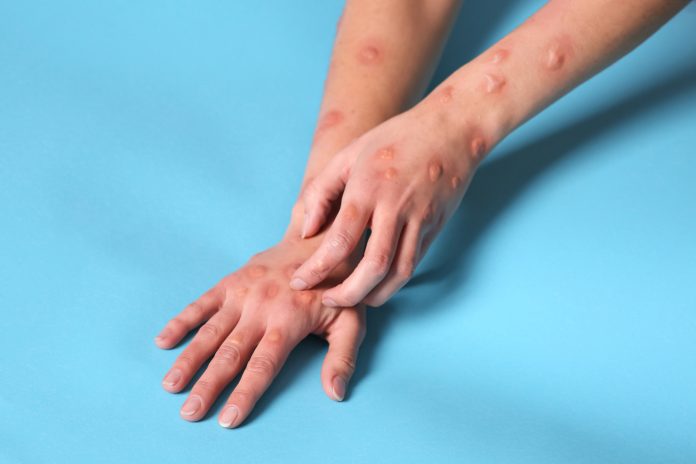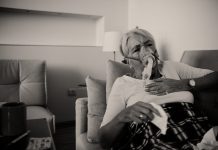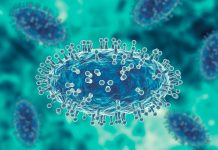Symptoms of Monkeypox can take 5 to 21 days to appear, so it’s important to be aware of the signs during this time and remain in isolation as it is contagious
The first symptoms of Monkeypox include a high temperature, headache, muscle aches, backache, swollen glands, chills, exhaustion, and joint pain.
A rash presenting as raised spots usually appears 1-5 days after the first symptoms begin. It then turns into small blisters filled with fluid.
Symptoms of Monkeypox are typically mild; however, you may require hospitalisation for more severe cases.
Stopping the spread of Monkeypox
Monkeypox can be passed on from person to person through any close physical contact with mpox blisters or scabs, contact with clothing, bedding, or towels used by someone with the infection, and respiratory droplets of a person with mpox.
It is also possible that pets could become infected or contaminated with the virus. See the guidance published by the Animal and Plant Health Agency (APHA) for advice if you have pets.
Preventative methods include the smallpox (MVA) vaccine, washing hands regularly with soap and water, or using an alcohol-based hand sanitiser.
According to data from the World Health Organization, most cases of monkeypox are male, and of those cases, a large proportion identify as men who have sex with men.
Dr Rosamund Lewis commented: “This [information] doesn’t mean that this group is responsible for the outbreak. It doesn’t mean that they should be stigmatised. It’s really about offering services where they need to be offered and to whom they need to be offered.”
Preventative measures:
-
talk to sexual partners about their sexual health and any symptoms they may have
-
be aware of the symptoms if you’re sexually active, especially if you have new sexual partners
-
take a break from sex and intimate contact if you have symptoms until you’re seen by a doctor
Guidance for isolating at home
If you have been diagnosed with Monkeypox, it is important that you isolate until you have not had a high temperature for at least 72 hours, you have had no new lesions in the previous 48 hours, all your lesions have scabbed over, and you have no lesions in your mouth and any lesions on your face, arms, and hands have scabbed over, all the scabs have fallen off, and a fresh layer of skin has formed underneath.
You should not go to work, school, or public areas, and you should keep at least one metre between other members of your household.
You should only leave your home for essential purposes such as emergencies, urgent medical appointments, or for urgent health and wellbeing issues.
If you need to leave your home, make sure all skin lesions on your body are completely covered and avoid all contact with objects such as furniture in public spaces.
Further guidance on limiting close contact with people you live with includes:
- sleep in a separate room and do not share bedding
- refrain from intimate or sexual activity
- use a separate bathroom
- use your own toothbrush, towels, and washcloths
- use separate dishes, cups, and cutlery
- do not share food and drink
- eat in a separate room
- cover your mouth and nose with disposable tissues when you cough or sneeze and dispose of them in a bag
- clean your hands frequently by washing with soap and water for 20 seconds – using separate soap and hand towel
- wear disposable gloves while washing up
- regularly clean surfaces
- wear a surgical face mask if traveling in the same car
- do your own laundry
It is particularly important to avoid close contact with young children, elderly people, pregnant people, and immunocompromised people.
A rare disease
It is important to note that Monkeypox is a rare infection caused by Orthopoxvirus, and it is most commonly found in West or Central Africa.
The World Health Organization (WHO) has now declared the recent surge of monkeypox cases in several African countries a Public Health Emergency of International Concern (PHEIC).
Sources:
https://www.nhs.uk/conditions/mpox/
https://www.gov.uk/guidance/guidance-for-people-with-monkeypox-infection-who-are-isolating-at-home








